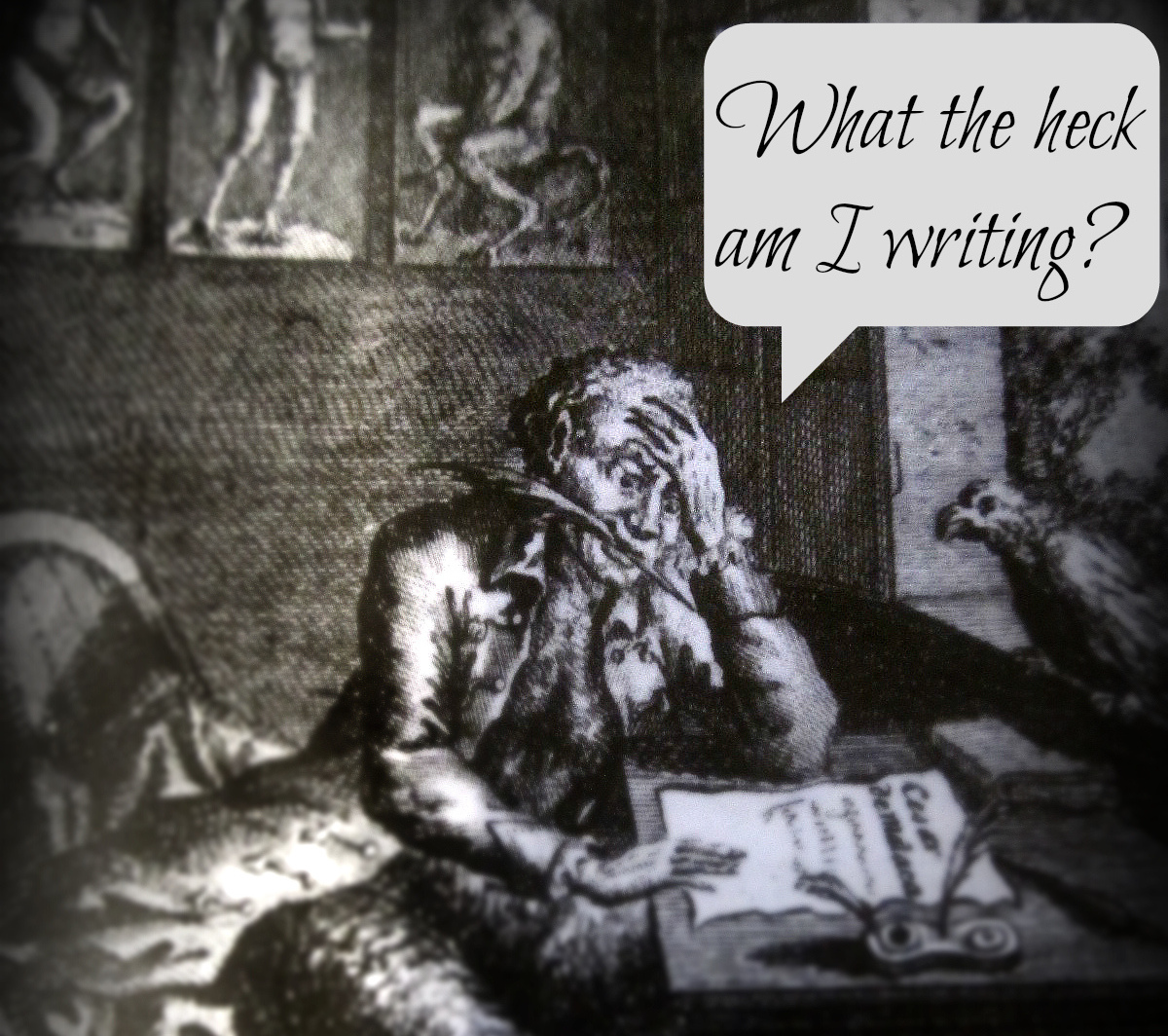Your readers hate bad writing…
They do; and you probably do too. Because there is nothing more distracting to someone who is trying to lose themselves in a fantasy world, than being torn out of that world by an awkward sentence or a word that doesn’t quite fit.
Maybe that is why so many of us writer types become such snobs for “good writing.” You know, the type of flowery language and intricate sentence patterns that grace the pages of those classic novels we love so much. For some of us, every single time we sit down to write, no matter what it is we happen to be writing, that is the standard of “good writing” that we want to hold ourselves to.
Actually, most of the time we prefer to hold ourselves to the even higher standard, don’t we? Perfection is what we strive for. Perfection is our standard—perfect writing is our obsession. Because we don’t just want everything we write to be perfect, we need everything we write to be perfect.
What artist could ever be satisfied with anything less?
Does that sound about right? Good. It should.
You should always strive to produce your best work in the end; but this innate perfectionism we all struggle with comes with a price.
I’m going to say it now, and you can either accuse me of blasphemy now, or hear me out and save your judgment for later…
Yes, your readers hate bad writing, but most of the time, good writing and our obsession with perfection is just getting in our way. Most of the time, bad writing is actually better than good writing.

Think about it. How many times have you been happily typing away, banging out a story that you had been thinking of all day, when suddenly your fingers type out a realllly ugly sentence.
We’re talking one of those monsters that runs on forever, with tons of grammar errors, and awkward word choices, and some hardcore passive voice that makes even text book writers cringe.
It’s the epitome of bad writing—or, at least it is to you.
You want to keep going with the story, but there’s no way you can continue telling your story knowing that you had actually come up with, and actually typed, that sentence into what is supposed to be your masterpiece. So you stop. You stop telling your story, and instead you devote all of your attention to correcting this one bad sentence. And therein lies the problem.
When you’re writing a story, you need to focus on the story, not the writing.
One of the most common pieces of advice that professional writers give is to ignore your internal critic—and this is one of the big reasons why that advice is given so often. When you stop your momentum, when you stop telling the story, and start to worry if the writing is up to your standard of perfection, bad things will happen. Because allowing yourself to be sidetracked by “good writing,” especially when you happen to be writing the early draft of a story, actually hurts your writing…
Confused? Let me put it this way: what is the hardest part about doing anything? Starting.
What is the hardest part about writing? Starting—making the decision to sit down and write.
So then if the hardest part is starting, why would you want to stop in the middle of a writing session? You wouldn’t.
Because if you stopped, you would have to start again; and wasn’t starting hard enough the first time? You don’t really want to go through that again, do you?
Well, when you shift your focus like this and go from storytelling mode, to “good writing” mode, that’s exactly what happens. You stop telling a story and you start doing something else.
Now let me ask you another question: if it’s distracting for a reader to be pulled out of a story, what do you think being pulled out of a story does to a writer—and consequently the story itself?
It dies a slow and painful death. You, as the writer lose your motivation to write. You become disappointed that you can’t meet you’re unrealistic standards of perfection and tell the story the way you want to tell it. Eventually, you even forget why you wanted to tell the story in the first place! All because you’re so focused on using the perfect words, and crafting the perfect sentence.
It’s sad. And here’s the saddest part of it all: the thing that most of us writers don’t seem to realize…
When you’re telling a story, your writing doesn’t need to be perfect. In fact, it shouldn’t even need to be good.
Your first draft of everything you write should be embarrassing.
The best first drafts are the ones that you would never show to anyone because, from a writer’s point of view, they are complete garbage. But, from a storytellers perspective, an embarrassing first draft is pure gold! Embarrassing first drafts are what happen when you’re so focused on telling the story, that you don’t care about the writing at all.
And when a storyteller is able to lose themselves in their own fantasies, well, that’s how the best stories are born.
Now, I’m not saying that just because you happen to be telling a story, that you should all together abandon your standards of perfection. Holding ourselves, and our writing, to the highest standards is still extremely important—but only after the story has been told, not while you’re writing the first draft.
If you haven’t picked up on what I’m trying to say, then here it is: good writing is actually called “editing and revising.” Good writing comes after the story has been told and should compliment the story, never the other way around.
So, basically, when you’re telling a story, tell the story. When you’re writing, write.
